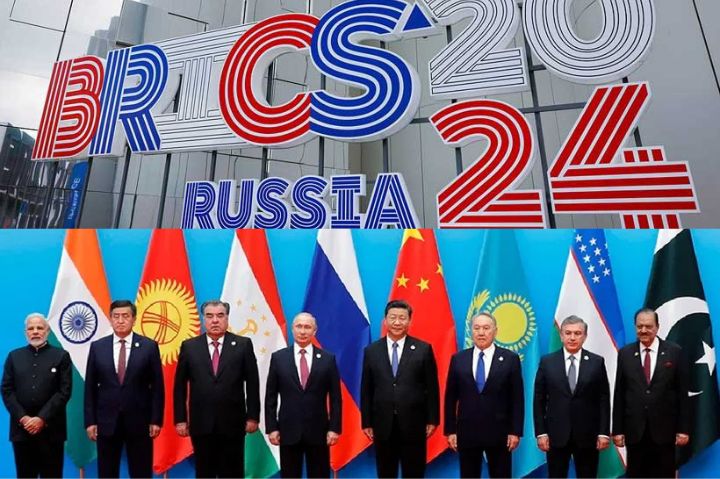
Repeating role as member of Cold War Non-Aligned Movement
Cuba was accepted with 12 other countries as an associate member of BRICS (Brazil, Russia, India, China, South Africa) at the 16th BRICS summit in Kazan, Russia in late October.
The other new associate members, which bring the BRICS grouping to over 4.6 billion people, or 57% of global population, are Algeria, Belarus, Bolivia, Indonesia, Kazakhstan, Malaysia, Nigeria, Thailand, Turkey, Uganda, Uzbekistan, and Vietnam.
The expansion of BRICS grants the new associate member countries the status of “partners,” a position that could open the door to full BRICS membership in the future.
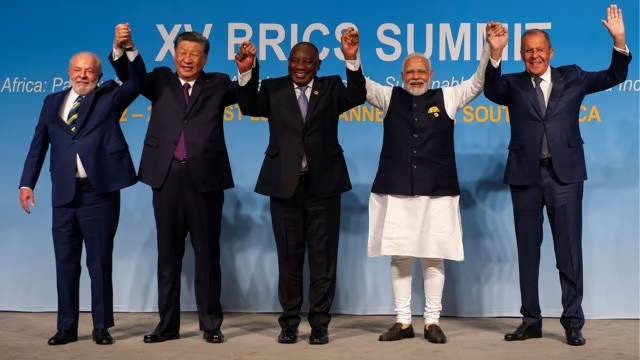
Cuban President Miguel Díaz-Canel was absent from the Kazan summit because he was dealing with Cuba’s recent nationwide blackout, a product of an outdated infrastructure system and Hurricane Oscar’s destruction. Both challenges are amplified crises due to the draconian U.S. blockade on Cuba, which restricts the import of key infrastructural needs by financial, economic, and diplomatic coercion.
Díaz-canel wrote on X that: “#Cuba is honored to enter as a partner country in the #BRICS, five letters and a great hope for the countries of the South, on the arduous path towards a more just, democratic, equitable, and sustainable international order.”
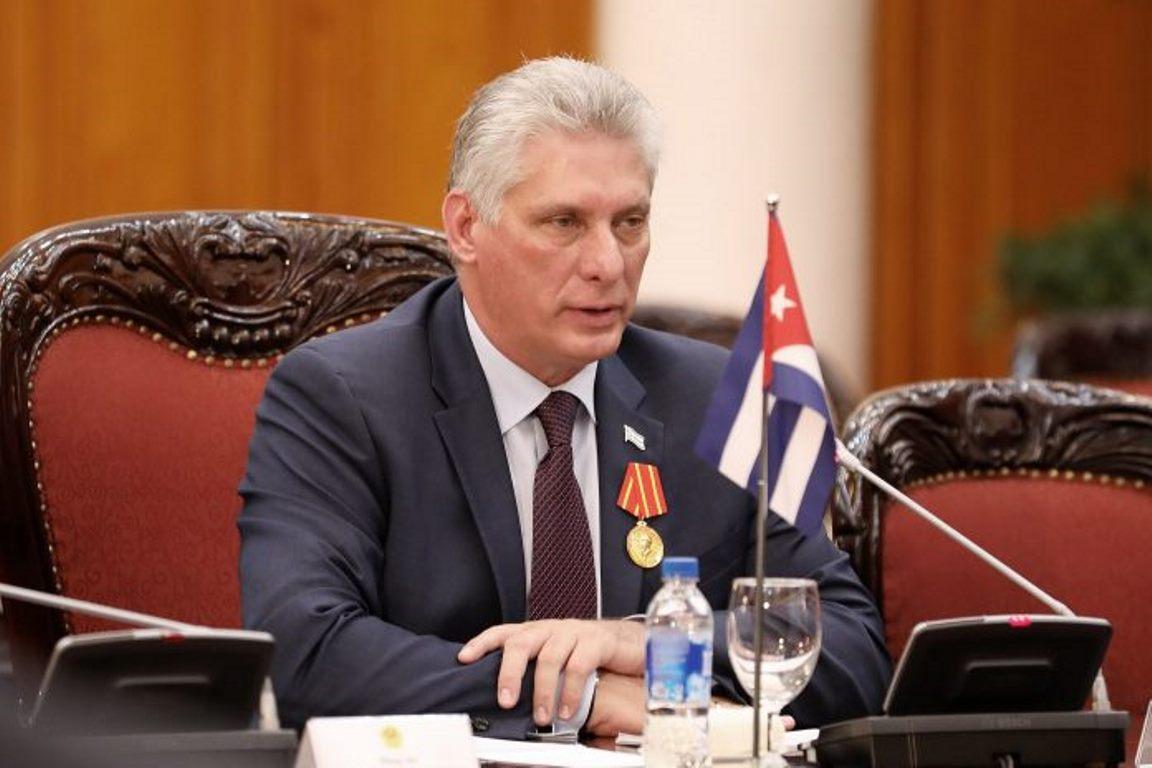
Díaz-canel’s remarks were echoed by Cuban Foreign Minister Bruno Rodríguez Parrilla, who attended the Kazan summit.
He spotlighted the potential of the New Development Bank—headed by former Brazilian President Dilma Rousseff—as a “favorable financial alternative for countries in the Global South” that could help “reduce the influence of the U.S. dollar,” which Rodríguez Parrilla said is “frequently used as an instrument of pressure that has a very negative impact on the quality of life of many of our people.”
Rodríguez Parrilla noted that Cuba was happy to join BRICS since it had “emerged as a key player of growing relevance, authority and leadership on the global geopolitical stage and a real hope for the countries of the South in their complex path towards” a better future.
Cuba stands to benefit in particular from alternative economic arrangements and trading alliances that could help offset the crippling effects of the U.S. economic blockade, a cruel form of punishment that costs Cuba an estimated $455 million per month.
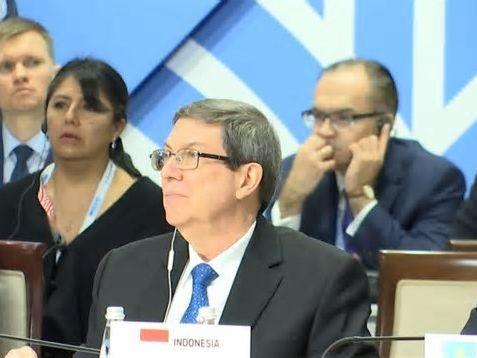
Kazan Summit
Attended by representatives of 36 countries (20 were heads of state), the Kazan summit took place amidst the backdrop of impending global war caused by the relentless aggressiveness of the United States and allies like Israel.
A summit communiqué called for ending the Ukraine war “through dialogue and diplomacy,” expressed “grave concern” at the “mass killing and injury of civilians, forced displacement and widespread destruction of civilian infrastructure” in Gaza, and criticized the Israeli assault and bombardment of southern Lebanon. The communiqué additionally cited “the disruptive effect of unlawful unilateral coercive measures, including illegal sanctions” on economic life.”
As a remedy for the latter, delegates proposed creation of an independent payment infrastructure, called “BRICS Clear,” which aims to reduce dependence on the U.S. dollar and will render obsolete sanctions applied by the U.S. that restrict bank transfers under the current SWIFT international messaging system.[1]
Delegates to the Kazan summit further endorsed the use of local currencies in financial transactions between BRICS countries and their trading partners.
Russian President Vladimir Putin proposed the establishment of a BRICS “investment platform” to foster physical economic growth, and the creation of a BRICS Grain Exchange to ensure fairer pricing and help ensure food security in developing countries while taking food supplies out of the hands of international speculators.
Over time Putin said that the exchange could grow into a broader commodity exchange including for oil, which would help ensure fair pricing and energy security across the Global South.
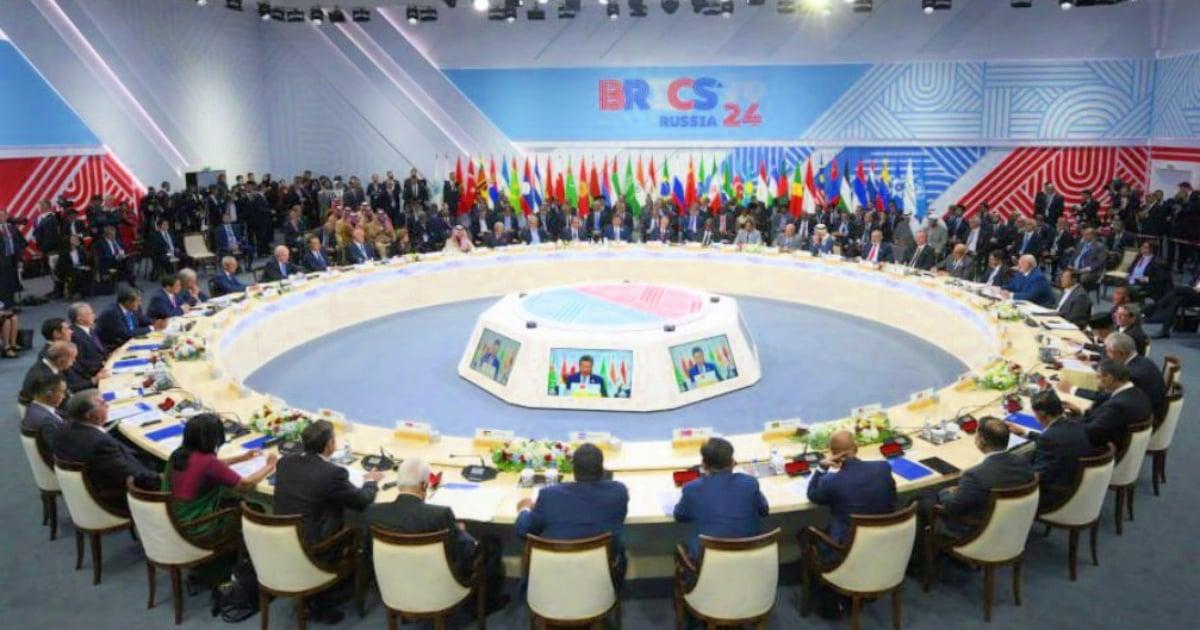
Chinese Premier Xi Jinping opened the Kazan summit by calling on BRICS to “help guide the world along the overarching trend of peace and development.”
Xi asked the other leaders: “Should we allow the world to descend into the abyss of disorder and chaos, or should we strive to steer it back on the path of peace and development?”
He answered that the BRICS shared an “unwavering determination” and “willpower” to build “a shared future for mankind,” while voicing support for expanding the BRICS “in light of the rise of the Global South” and need to “enhance the representation and voice of developing nations in global governance.”
Speaking before President Xi, Putin emphasized in his speech the need for tightened cooperation between the BRICS countries and its new members in the realm of technology, education, efficient resource development, trade and logistics, finance and insurance, stating that “we have assumed responsibility for the future of the world, not only in word, but also in deed.”
Putin later told the BRICS Plus/Outreach session: “All our countries share similar aspirations, values and a vision of a new democratic world order that reflects cultural and civilizational diversity. We are confident that such a system should be guided by the universal principles of respect for the legitimate interests and sovereign choice of nations, respect for international law and a spirit of mutually beneficial, honest co-operation.”
Putin’s spokesman Dmitry Peskov elaborated on the BRICS’s purpose and principles, in order to explain why the BRICS is not closed to any nation, even members of NATO or the EU (the admission of NATO-member Turkey as a new BRICS “partner state” served to prove his point):
“There is a political will that unites countries that share the same vision of development prospects. Be it political development, economic development, cultural development and so on. It is an atmosphere in which each other’s interests are taken into account. It is an atmosphere where there are no hegemonic aspirations,” he said.
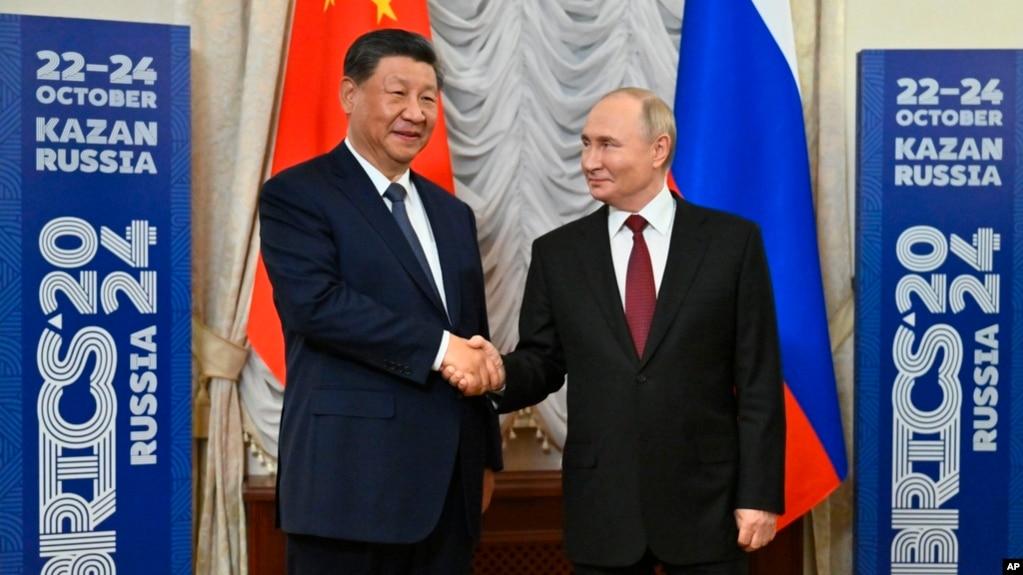
These latter comments offered a jibe at the U.S. whose hegemonic aspirations have led the world to the brink of World War III.
The BRICS summit makes clear, however, the growth of a huge resistance bloc of nations that is intent on stopping the drive to war while establishing a more egalitarian global economic order.
Barriers to Success and Need for a New Socialist Internationale
One potential barrier to success of the BRICS is divisions among the member states, which is what crippled the non-aligned movement during the first Cold War.

The World Socialist Website (WSWS) pointed out in an article on the Kazan summit that “BRICS member or candidate states, including India and Pakistan or Iran and Saudi Arabia, have repeatedly fought or threatened to fight wars with each other.”
Brazil has also made a point of excluding Venezuela from BRICS because of criticism it has of its government, though Venezuela has been a crucial country in trying to lead Latin American countries towards a path of resource nationalism and away from dependence on the U.S.
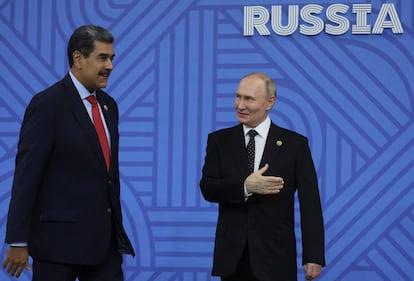
The WSWS was off put by the presence in Kazan of “bloodstained Egyptian dictator al-Sisi,” who is “infamous for drowning revolutionary struggles of the Egyptian workers in blood.”

This points to the larger hostility towards leftist and working class social movements among many of the BRICS countries, according to the WSWS. The summit communiqué actually called for an adequately resourced International Monetary Fund (IMF)—which is notorious for advancing economic austerity and anti-worker policies.
The WSWS editorialized that BRICS is “a coalition of capitalist governments hoping to develop a ‘multipolar’ world order, so they can coexist more or less peacefully with the NATO imperialist powers, as the Stalinist bureaucracy also tried to do before liquidating the Soviet Union. While it seeks an accommodation with imperialism, the imperialist powers are for their part utterly reckless and ruthless in prosecuting their interests via genocide and war. They seek not multipolarity but world hegemony.”
The WSWS would prefer the formation of a new “Socialist Internationale” capable of standing up stronger to Western imperialism. However, that does not appear to be on the horizon given the right-wing nature of some of the governments in BRICS and lack of momentum for socialist revolutionary movements around the world at this time.

Since the unilateral U.S. cancellation of the Iranian nuclear treaty in 2018 and the 2022 outbreak of the Ukraine war, Washington cut off the access first of Iran and then of Russia to the U.S. dollar and its related SWIFT system of international interbank payments, strangling their economies. Amid NATO’s military debacle in Ukraine, moreover, Washington is imposing sanctions on Chinese banks financing trade with Russia. Russia and China are currently accelerating their purchases of gold, a potential alternate hard currency to the U.S. dollar. ↑
CovertAction Magazine is made possible by subscriptions, orders and donations from readers like you.
Blow the Whistle on U.S. Imperialism
Click the whistle and donate
When you donate to CovertAction Magazine, you are supporting investigative journalism. Your contributions go directly to supporting the development, production, editing, and dissemination of the Magazine.
CovertAction Magazine does not receive corporate or government sponsorship. Yet, we hold a steadfast commitment to providing compensation for writers, editorial and technical support. Your support helps facilitate this compensation as well as increase the caliber of this work.
Please make a donation by clicking on the donate logo above and enter the amount and your credit or debit card information.
CovertAction Institute, Inc. (CAI) is a 501(c)(3) non-profit organization and your gift is tax-deductible for federal income purposes. CAI’s tax-exempt ID number is 87-2461683.
We sincerely thank you for your support.
Disclaimer: The contents of this article are the sole responsibility of the author(s). CovertAction Institute, Inc. (CAI), including its Board of Directors (BD), Editorial Board (EB), Advisory Board (AB), staff, volunteers and its projects (including CovertAction Magazine) are not responsible for any inaccurate or incorrect statement in this article. This article also does not necessarily represent the views the BD, the EB, the AB, staff, volunteers, or any members of its projects.
Differing viewpoints: CAM publishes articles with differing viewpoints in an effort to nurture vibrant debate and thoughtful critical analysis. Feel free to comment on the articles in the comment section and/or send your letters to the Editors, which we will publish in the Letters column.
Copyrighted Material: This web site may contain copyrighted material the use of which has not always been specifically authorized by the copyright owner. As a not-for-profit charitable organization incorporated in the State of New York, we are making such material available in an effort to advance the understanding of humanity’s problems and hopefully to help find solutions for those problems. We believe this constitutes a ‘fair use’ of any such copyrighted material as provided for in section 107 of the US Copyright Law. You can read more about ‘fair use’ and US Copyright Law at the Legal Information Institute of Cornell Law School.
Republishing: CovertAction Magazine (CAM) grants permission to cross-post CAM articles on not-for-profit community internet sites as long as the source is acknowledged together with a hyperlink to the original CovertAction Magazine article. Also, kindly let us know at info@CovertActionMagazine.com. For publication of CAM articles in print or other forms including commercial internet sites, contact: info@CovertActionMagazine.com.
By using this site, you agree to these terms above.
About the Author

Jeremy Kuzmarov holds a Ph.D. in American history from Brandeis University and has taught at numerous colleges across the United States. He is regularly sought out as an expert on U.S. history and politics for radio and TV programs and co-hosts a radio show on New York Public Radio and on Progressive Radio News Network called “Uncontrolled Opposition.”
He is Managing Editor of CovertAction Magazine and is the author of six books on U.S. foreign policy, including Obama’s Unending Wars (Clarity Press, 2019), The Russians Are Coming, Again, with John Marciano (Monthly Review Press, 2018), Warmonger. How Clinton’s Malign Foreign Policy Launched the U.S. Trajectory From Bush II to Biden (Clarity Press, 2023); and with Dan Kovalik, Syria: Anatomy of Regime Change (Baraka Books, 2025).
Besides these books, Kuzmarov has published hundreds of articles and contributed to numerous edited volumes, including one in the prestigious Oxford History of Counterinsurgency .
He can be reached at jkuzmarov2@gmail.com and found on substack here.

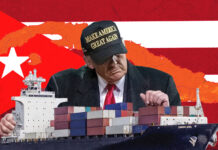
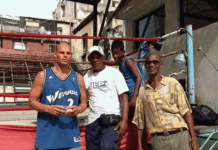

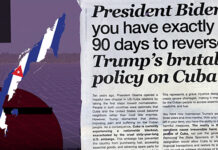
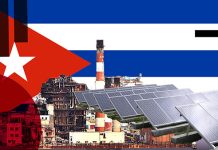
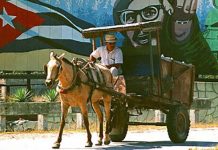

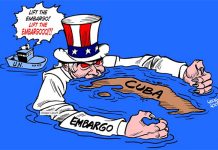


India Prime Minister Modi has been strongly urging Putin to end his senseless invasion of Ukraine. Hopefully Modi efforts will be successful and the war will end soon.
(Ron Ridenour, who also writes for CAM, asked me to post this comment for him)
Your exposition and analysis of the recent BRICS conference, Jeremy, is revolutionary journalism par excellence. You combine solidarity support with constructive criticism, which is absolutely necessary for our forces to be eventually successful in opposing and replacing the US-ARME (United States of America Racist Military Empire) and its 50 some vassal states.
I have participated in scores of peoples’ causes opposing US-ARME exploitation-oppression-repression-genocide, and two communist parties, in several countries. The greatest deterrent to our success, other than the Establishment’s repression, has been our top-down structures that diminish internal debate and criticism of leadership.
Our socialist and capitalist led parties and governments have been too top-down to be as viable as otherwise possible. Most of them have collapsed. Only the communist parties of China, Vietnam, Laos, North Korea and Cuba remain the dominating power.
While the Non-Alignment Movement still formerly exists, it is too divided and weak to have much effect on world affairs or even within each member state. CAM’s managing editor shows us that BRICS is much stronger but also has internal structural weaknesses, such as hoping for the best for the West’s capitalist International Monetary Fund. It is wishful thinking to expect, or even hope that the IMF will change its inadequately resourced structure to actually aid developing countries since the West profits more from inequality. That is so because some members and new partners of BRICS are not yet willing to separate themselves from Western domination.
Today, BRICS has disputes between Brazil and Venezuela and China and India. This has prohibited some 30 countries waiting in line to become full members. Instead, 13 are now partners. The difference is unclear.
Nevertheless, BRICS has emerged stronger. It is a real threat to Western magnates and their unequal exploitative economic and political structures. That places the entire world’s population and the planet itself in great danger of near total destructive if the West’s capitalists decide to go down killing billions hoping that their kind can escape planet earth in their private satellites.
Jeremy, your conclusion is right on! This article, and CAM’s general analyses by many savvy writers; ought to be part of a new mass movement oriented towards replacing capitalism with a socialist based society. Editors could consider compiling pamphlets—both online and in print—of some of CAM’s many such articles that could aid in building such a movement(s).
Here is an interesting article about Brics.
https://www.csis.org/analysis/why-are-latin-american-dictators-seeking-membership-brics
This CSIS link is headed by former military and political leaders in the US and therefor what is printed is in their interests and not BRICS or any in the “global south”, nor for the working class internationally.
Here are citations showing what I mean: “With the enlargement of BRICS, democracies are now outnumbered 22 to 3 when factoring in the authoritarian and semi-authoritarian countries…The bloc will become a magnet for other autocracies that are clearly aligned with Moscow and Beijing and have anti-Western grievances. In Latin America, the dictatorships of Venezuela’s Nicolas Maduro, Nicaragua’s Daniel Ortega, and Cuba’s Miguel Díaz-Canel… while democratic Argentina, under President Javier Milei, declined the invitation to join the group over “ideological differences.”
So Venezuela, Nicaragua and Cuba are “dictatorships” and fascist Milieu is a “democrat” and all others who the US opposes are “dictators” and “authoritarian”.
I am not familiar with the President of CSIS, but her is a video of him.
https://www.youtube.com/watch?v=dqsonPUFn7I
wsws is alright when it comes to reporting news,but they,as all trotskyists do,betray a very childish mentality in terms of political economics